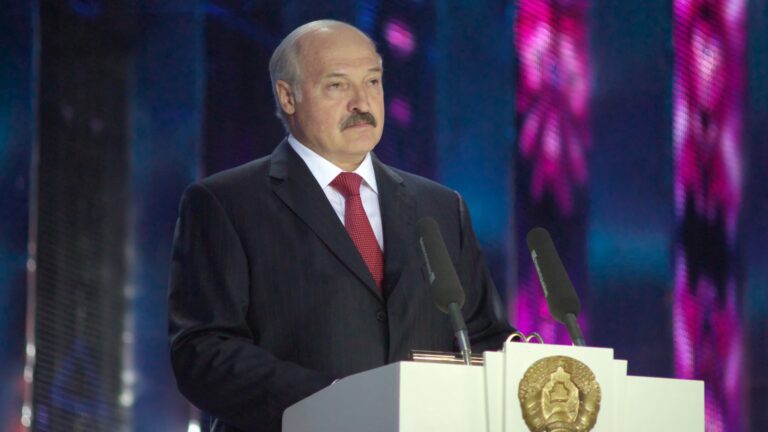
Although relations between Beijing and Helsinki have been mostly characterized by a pragmatic positive atmosphere, there is a growing awareness in Finland of China-related challenges linked to geostrategic competition as well as Chinese covert activities in the country.
As the Speaker of the U.S. House of Representatives, Nancy Pelosi visited Taiwan in August, China’s reaction was predictably furious. China’s diplomatic corps condemned the visit with the strongest terms possible, while the People’s Liberation Army boosted the message by organizing massive military drills and missile tests around the island.
Meanwhile in distant Finland, an obscure “non-governmental association”, known as the Finland Association for Promoting Peaceful Reunification with China (FAPPRC), also voiced its concern. The Chairman of the association, Zhu Hailun, scolded the visit in various Chinese news sites, claiming that challenging the “One-China Principle” openly would amount to making enemies out of the 1.4 billion Chinese people. Fortunately for China, Zhu said, such “clumsy performances” as the one given by the Speaker represented mere background noise in the process of the Chinese reunification, and were doomed to fail in the end.
While Zhu’s outburst went completely unnoticed in Finland and probably everywhere else too, it serves as an important reminder that the Chinese Communist Party (CCP) has ongoing ‘gray zone’ activities also in the Nordic state, which has seemed to remain mostly outside of the intensifying diplomatic quarrels between China and (Western) democracies. To the contrary, Sino-Finnish relations have developed smoothly and pragmatically to the extent that President Xi Jinping himself has praised the relationship as setting “an example for peaceful co-existence and friendly exchanges between two countries that are different in size, culture and development level. ” Xi’s remarks – entitled “Our Enduring Friendship” – were published in a Finnish newspaper, Helsinki Times, which also provides a daily dose of CCP propaganda through its ”China News” supplement.
While the friendship arguably endures, the Communist Party and its intelligence/influence apparatus are simultaneously hard at work attempting to manipulate local Chinese diaspora through its network of united front organizations and proxy groups, and by establishing elite-to-elite ‘circles of friends’ within the Finnish society at large, including within the Finnish Parliament.
The United Front in Finland
FAPPRC represents a prime example of CCP proxy groups, which operate through the party’s so-called “united front system”. The system is led by the United Front Work Department (统一战线工作部, UFWD), which is under the direction of the Central Committee of the CCP. The united front system consists of a vast network of party and state-affiliated agencies and organizations responsible for influencing groups and individuals which are not directly controlled by the CCP – both within and outside China. Outside the country’s borders, the united front mainly targets overseas Chinese diaspora and their associations, attempting to identify and counter threats to the party’s dominant position, and to mobilize Chinese communities to support party policies in the target country.
FAPPRC is closely connected to the Chinese party-state structure through the united front system. Although the organization claims to be a non-governmental association, it is one of the numerous “peaceful reunification councils”, which have been established all around the globe. All reunification councils are supervised by China Council for the Promotion of Peaceful National Reunification (CCPPNR, 中国和平统一促进会) – a CCP organization led by a high-ranking party member. The CCPPNR has been most recently led by Wang Yang, who retired from the CCP Politburo Standing Committee during the 20th CCP National Party Congress held in November.
Similar to its sister organizations, FAPPRC has organized both pro-China demonstrations (e.g. during Xi’s visit to Finland in 2017) and counter-demonstration against e.g. Hong Kong democracy activists. The association maintains deep connections with its peer organizations in China, and has hosted various delegations representing Chinese united front organizations. In essence, FAPPRC can be defined as an unofficial Communist Party node in Finland. The organization and its activities rose to prominence in 2020 when it was revealed that the vice-chairman of the organization, a Finnish citizen, was also an elected member of the Vantaa city council, without making public her affiliations with the united front group.
Besides FAPPRC, another cluster of united front organizations is active within the Finnish academic and scholarly communities. The main task of such united front groups is to supervise the activities of Chinese scholars and students within the target countries while at the same time promoting the transfer of intellectual property and technology to the fatherland, often bordering on industrial espionage. In Finland, a major organization active on this front is the Chinese Association of Science and Technology in Finland (CASTF), which has similar sister organizations in various other countries.
CASTF, like its peers, has invited various Communist Party delegations to Finland, of which the most notable was led by Xu Yousheng (许又声), at the time the deputy director of the United Front Work Department itself. Xu was seen visiting the prestigious Micronova research center of Aalto University (specializing in micro and nanotechnology), and later, in a session organized together with the Chinese embassy in Helsinki, he thanked CASTF for its efforts and for “not forgetting the original intention.”
The most visible activities of the united front groups in Finland seem to have ceased in 2020, after the Finnish media discussed them in detail. But as can be seen from the recent outburst by Xu, the network itself probably remains active as ever.
The efficiency of the Finnish united front groups, especially FAPPRC, in terms of influencing local opinion is dubious at best. However, such organizations still serve an important two-way function. On the one hand, they provide a venue for signaling patriotic leanings towards possible CCP audiences. At the same time, the Communist Party can utilize the groups in its propaganda to claim widespread support for its policies all around the globe. Reunification council chairmen are often quoted in party media although they in no sense represent Chinese diaspora or their opinions in their respective countries. Indeed, after the 20th party congress of the CCP held in October, Zhu Hailun was again quoted poetically praising the party for leading China towards its new journey.
Parliamentary Connections
While the activities of groups like FAPPRC probably remain negligible in the big picture, other types of party-led influence work within the Finnish Parliament, perhaps represent a more professional and thus more severe phenomena. The Communist Party maintains its relations with foreign political parties through its international wing, the International Liaison Department (ILD).
Such party-to-party relations are not ideologically oriented, that is to say, the ILD is not interested in developing links only with other socialist or left-leaning parties. To the contrary, the CCP develops connections with whichever political movement (left or right) that wields considerable influence in the target country.
In Finland, based on surface-level research, the Communist Party seems to have been most interested in bonding with the Finnish Center Party (Keskusta), one of the traditional “big three” parliamentary parties.
The Center party has hosted various CCP visitors, and sent top-level delegations of its own to Beijing. In 2017, when the CCP organized “world political parties dialogue” – a propaganda spectacle to celebrate the achievements of the Chinese political system – the event was attended by a high-ranking Centre party member. He was later quoted in a CCP international propaganda mouthpiece, China Daily, praising the Communist party as “progressive, big and well governed”, thus well serving the core propaganda message on a wide-spread international support for the CCP and its policies.
The Finnish Parliament, meanwhile, has offered its premises for a series of “China Days” (中国日) events that have been organized by the Finnish-Chinese Parliamentary friendship group in cooperation with the Chinese embassy in Helsinki. The event gained notoriety in early 2020, as Suomen Kuvalehti magazine revealed that active members of the friendship group, Mika Niikko and Ville Vähämäki (Finns party), had made various trips to China, organized by the Jiangsu Association for Science and Technology (JAST). JAST is a known affiliate of China’s main foreign intelligence service, the Ministry of State Security.
To make a longer story short, the duo ended up inviting a Chinese artificial intelligence scholar Li Deyi to visit Finland and the Finnish parliament. Known or unknown to Niikko and Vähämäki, Li also serves within the People’s Liberation Army as a Major General, and is a well-established figure within the Chinese research communities on the military applications of AI. These events give an impression of a professional, patient and well-designed intelligence operation that took place right within the Finnish parliament.
A Turn in Relations
China’s relations with Finland have developed smoothly, and during the “honeymoon-period” of Sino-Finnish integration, such “sub-threshold” activities as described above remained mostly unnoticed. The positive pragmatism of the Sino-Finnish relation, however, has probably peaked during Xi Jinping’s visit to Finland in 2017. Since then, China’s foreign policy has taken a sharp assertive turn with coercive and hawkish diplomacy replacing earlier low-profile approach.
While Finland has so far avoided the most powerful punches of Chinese “wolf warrior” diplomats, a discourse emphasizing China-related threats has slowly emerged also in Finland. With the war in Ukraine and China’s tacit support for Russia’s invasion, relations have further deteriorated, and calls on reducing strategic dependencies on China have intensified.
Illustrating this new awareness of challenges, at an annual start up event held in Helsinki in November, Finnish Prime Minister Sanna Marin remarked that “we have to make sure that we have the capabilities and the knowledge to build these technologies and not be dependent on China and other authoritarian countries that have a different logic than democratic countries have.”
In May, Finland decided to apply for NATO membership together with Sweden, clearly positioning Finland within the camp of the Western democracies in the “new Cold war”. This strategic realignment has no doubt not gone unnoticed in Beijing.
It is still an open question how the emerging threat-discourses will impact official relations, but it seems certain that at least the united front groups in Finland will continue to work hard for the ‘betterment of understanding’ between Finland and the CCP. Indeed in June 2022, China’s newly arrived ambassador to Finland, Wang Tongqing, called upon participants of a webinar to thank local Chinese associations for their contributions for strengthening diplomatic ties between China and Finland. Naturally, united front groups such as FAPPRC and CASTF were also in attendance.
This article builds upon a longer report published by Institute of Security and Development Policy in August 2022.
Written by
Matti Puranen
Dr. Matti Puranen is a Senior Researcher at the Finnish National Defense University and a Visiting Research Fellow at the INSS Center for the Study of Chinese Military Affairs at U.S. National Defense University.


